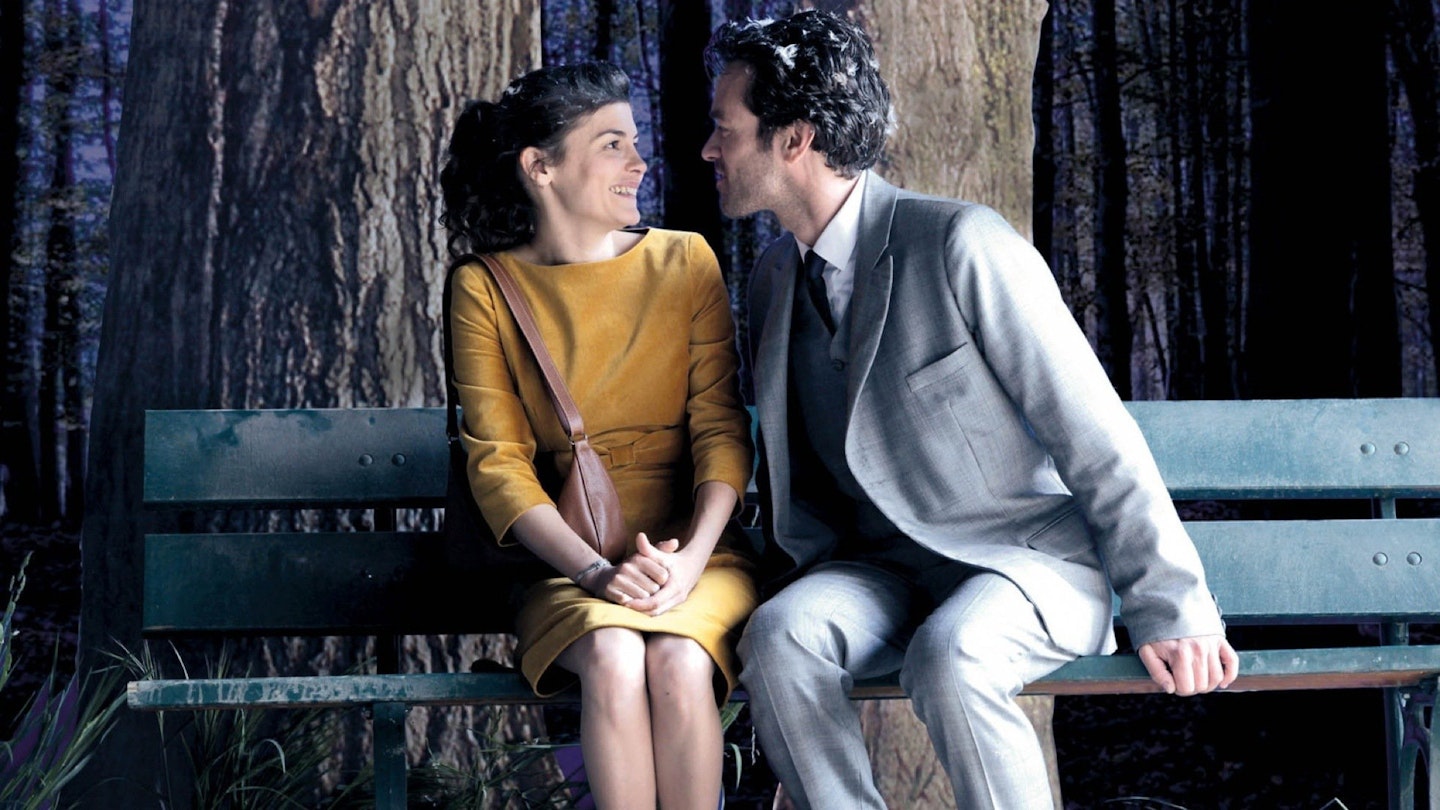There are many holes to be picked in Michel Gondry’s latest film, a return to French smallness after the poorly fitting American hugeness of The Green Hornet, but you can’t accuse him of not trying. Every frame strains with care. If there’s not something hand-knitted, it’s animated or twisted and moulded like an extravagant school art project. Yet for all the imagination expended, too little has gone into the characters, so all the dazzle hits you in the eyes and not your heart.
Gondry is given a certain degree of built-in empathy with his choice of leads. Romain Duris is odd, innocent Colin, a Willy Wonka-ish young man who is rich for reasons unknown and fills his time inventing pianos that make cocktails or chatting with a chef who prepares stop-motion eels and teaches Colin how to do rubber-legged dances. But what Colin wants is a woman to love. So he finds Chloé, played by Audrey Tautou (because when you want someone whimsical and adorable and French, who won’t blink at conversing with a mouse played by a man in a costume, you call Audrey Tautou). They are inherently lovable and something in their nature keeps the twee presentation from slipping into sickliness. A sugar rush only lasts so long, though.
When tragedy is introduced into the story, Gondry doesn’t have the emotional ballast to hold it up — the formative beginning of their love is dismissed with a “six months later” caption — so we’re not really invested in the sadness of the couple but just witness to their gloom. This becomes dreary, especially as the art direction changes to fit their mood, covering the screen in cobwebs, rot and dust (the UK cut has been shorn of 30 minutes but still feels indulgent with its time). It’s misery without catharsis.
Gondry has one of cinema’s most peculiar minds, which can be a thing of wonder when he can find a thought to match his ambitions, as in Eternal Sunshine Of The Spotless Mind, where he deconstructed love and patched it back together in a way only he could. But when there’s no firm central structure for him to build his arts and crafts around, you’re left with a shapeless collage, a pretty tapestry of nothings.

